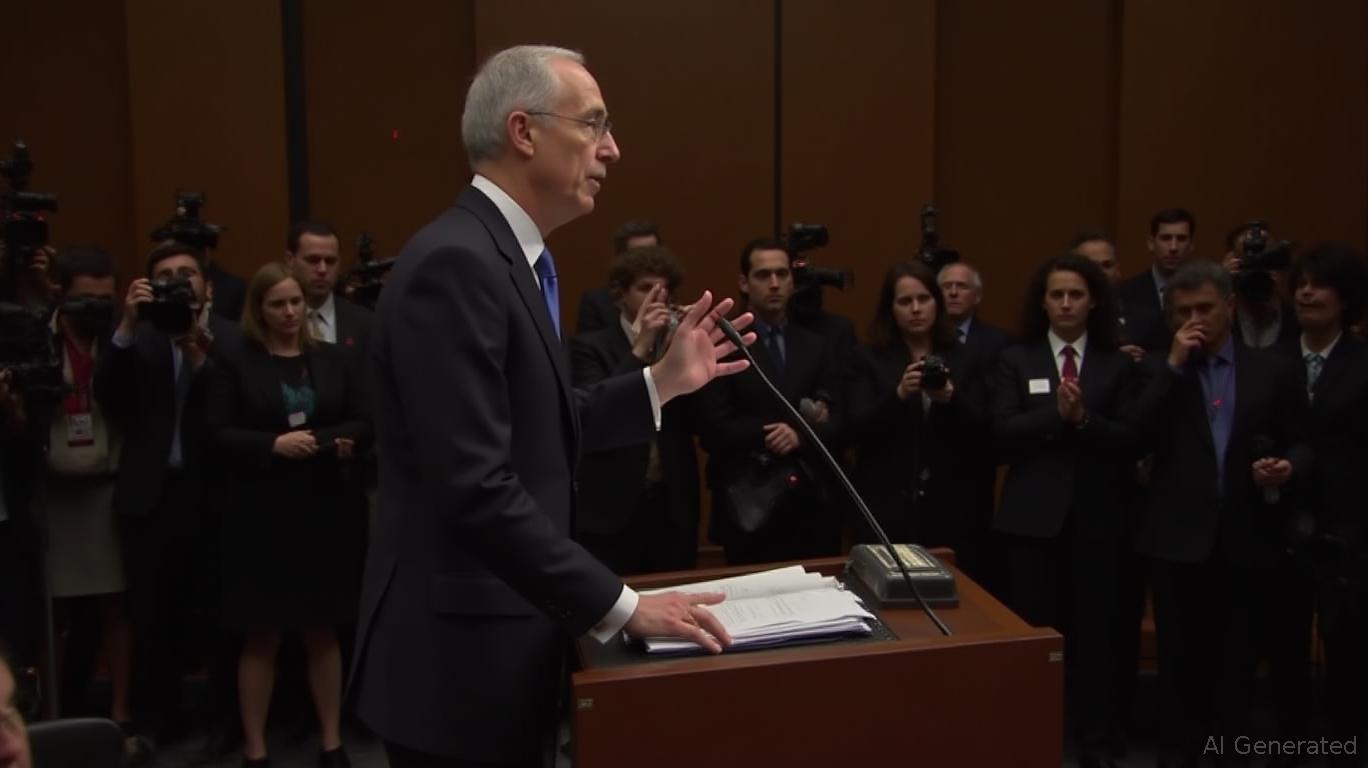U.S. and China Hold Trade Negotiations in Kuala Lumpur to Prevent Escalation and Extend Ceasefire
- U.S.-China high-level trade talks resumed in Kuala Lumpur, 2025, aiming to avert a trade war ahead of potential Trump-Xi APEC summit discussions. - Negotiations focused on agricultural trade (U.S. soybean imports to China dropped to zero in September 2025), rare earth export controls, and semiconductor tariffs. - Malaysia's neutral role highlighted its diplomatic influence, with U.S. officials acknowledging its strategic value in stabilizing trade ties amid unresolved issues like Hong Kong's Jimmy Lai de
From October 24 to 27, 2025, senior officials from the United States and China reconvened in Kuala Lumpur, Malaysia, for high-level trade discussions. These talks were intended to ease rising economic frictions ahead of a possible meeting between President Donald Trump and President Xi Jinping at the APEC summit in South Korea. U.S. Treasury Secretary Scott Bessent and Chinese Vice Premier He Lifeng led the delegations, focusing on contentious issues such as agricultural trade, rare earth export restrictions, and tariffs on semiconductors. Taking place alongside the ASEAN Summit, the negotiations highlighted both countries’ intent to prevent further conflict as a temporary trade ceasefire is set to lapse on November 10, according to a
Agricultural trade continues to be a major obstacle. In September 2025, U.S. soybean shipments to China dropped to zero for the first time since November 2018, a result of reciprocal tariffs and China’s pivot to other suppliers like Brazil and Argentina. While China’s total soybean imports reached 12.87 million tons in September—the second-highest ever—American farmers have faced heavy losses. Trump has described the soybean issue as a negotiation strategy by China, whereas Beijing stresses the importance of reducing trade barriers, the ukragroconsult report notes.

The discussions also covered China’s new limits on rare earth exports, which the U.S. claims could disrupt global supply chains for technology and defense. In response, the U.S. has initiated a Section 301 investigation into China’s adherence to the 2020 Phase One trade deal, alleging that Beijing has not fulfilled its promises on market access and purchasing U.S. products. The Trump administration has warned of possible retaliatory actions, including imposing a 100% tariff on Chinese imports if the dispute worsens, according to an
Malaysia’s selection as a neutral location underscored its increasing diplomatic role in facilitating dialogue between the U.S. and China. Prime Minister Anwar Ibrahim reiterated Malaysia’s dedication to encouraging talks, while American officials recognized Kuala Lumpur’s strategic importance in maintaining stable trade relations. The city’s robust semiconductor industry further emphasized its significance, as both countries aim to secure supply chains for electric vehicles and consumer electronics, as highlighted in a
By the second day, U.S. Trade Representative Jamieson Greer reported that progress had been made toward arranging a “productive meeting” between Trump and Xi, with topics including soybean trade, Taiwan, and Hong Kong. However, China has not yet confirmed the leaders’ meeting, and unresolved matters—such as the detention of Hong Kong media figure Jimmy Lai—remain significant. While a preliminary deal could lead to an extension of the trade truce, experts warn that any agreement is fragile given ongoing geopolitical tensions, according to
These negotiations occur as the U.S. intensifies efforts to address China’s trade practices, with groups like the American Primary Aluminum Association backing the Section 301 investigation. Industry representatives argue that China’s failure to comply with the Phase One agreement has damaged U.S. manufacturing, calling for stricter enforcement of trade policies, according to
If these disputes are not resolved, the risk of a deeper trade conflict looms, potentially impacting the global economy. On the other hand, reaching a compromise could bring significant benefits to American agriculture and help stabilize food markets, as Fortune observes. The results of the Kuala Lumpur negotiations are expected to influence the future direction of U.S.-China relations, with effects extending well beyond bilateral trade, the ukragroconsult report concludes.
---
Disclaimer: The content of this article solely reflects the author's opinion and does not represent the platform in any capacity. This article is not intended to serve as a reference for making investment decisions.
You may also like
BNB News Update: As BNB Levels Out and AVAX Declines, Crypto Investors Turn Their Attention to MoonBull
- BNB stabilizes above $1,100 amid Kyrgyzstan's BNB-backed stablecoin/CBDC partnership with Binance's CZ, while MoonBull ($MOBU) emerges as a high-ROI altcoin focus. - MoonBull's presale model offers 9,256% projected ROI through 23 price stages, 95% APY staking, and deflationary mechanics (liquidity, reflections, burns) to drive scarcity. - T. Rowe Price's $1.51T asset manager's crypto ETF filing signals institutional adoption, contrasting with AVAX's 14.85% monthly decline and bearish indicators. - $MOBU'

Bitcoin News Update: Bitcoin's Reputation as 'Digital Gold' Sparks Shift from Ethereum ETFs
- Ethereum ETFs saw $18.77M outflows in late October as investors shifted to Bitcoin, deepening crypto market divergence. - Bitcoin ETFs gained $73.63M in inflows via BlackRock's IBIT, maintaining $146.27B in net assets vs. Ethereum's $25.81B. - Bitcoin's price stabilized at $108,630 while Ethereum fell 0.89% to $3,832, reflecting institutional preference for Bitcoin's stability. - Fidelity's FBTC and Bitwise's BITB attracted $75.33M in October inflows, reinforcing Bitcoin's ETF leadership over Ethereum.

Ethereum Updates: Structured Staking Takes on Viral Craze as MoonBull Competes with SHIB's Meme Coin Dominance
- Shiba Inu (SHIB) faces 2025 price speculation amid meme coin rivalry with Dogecoin (DOGE) and emerging contender MoonBull (MOBU). - MoonBull's Stage 5 presale offers 9,200% ROI potential, raising $450K+ with 95% APY staking and 23-stage price escalation. - Critics highlight meme coin risks, while utility-focused projects like Remittix (RTX) gain traction with $27.5M raised and CertiK audit. - SHIB's 2025 forecast depends on Shibarium integration and market sentiment, but MoonBull's structured incentives

Bitcoin News Update: US-China Agreement Prevents Full Tariffs, Boosting Cryptocurrency Market
- US-China trade deal averts 100% Trump-era tariffs, sparking 1.8% Bitcoin rise to $113,500 and 3.6% Ether surge. - Framework includes China delaying rare earth export controls and US securing agricultural purchases amid $3.88T crypto market rebound. - Trump's tariff ultimatum provided key leverage, with APEC summit set to finalize deal addressing global supply chain stability. - Analysts link trade de-escalation to crypto gains, predicting potential all-time highs if Fed adopts dovish stance alongside sus
